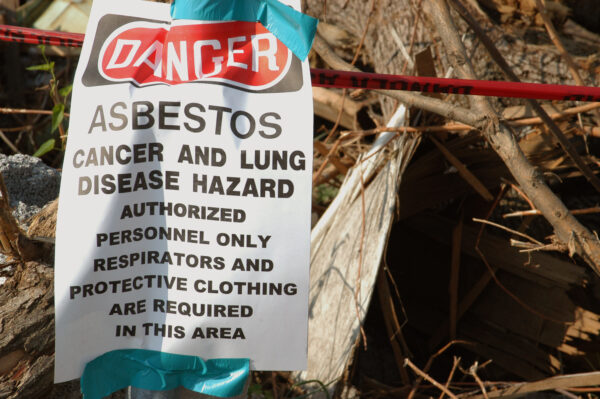
(Photo: Mark Haviland, U.S. Army Corps of Engineers)
Numerous Veterans have been exposed to asbestos, a known cancer-causing agent, during their military service, potentially leading to severe health complications.
Veterans who served in occupations like mining, shipyard work, demolition, carpentry, and construction may have encountered asbestos. However, Veterans stationed in conflict zones, such as Iraq and other regions in the Middle East, faced additional risks. The widespread use of asbestos in older buildings, combined with the damage inflicted during military operations, led to the release of asbestos fibers into the air. This exposure heightened the health risks for Veterans serving in these areas, potentially leading to long-term health complications.
Exposure to asbestos presents serious health hazards, primarily affecting the respiratory system. Asbestos-related diseases include asbestosis, pleural plaques, lung cancer, and mesothelioma. With Lung cancer and mesothelioma being the most severe consequences of asbestos exposure. Mesothelioma is rare and directly linked to asbestos exposure. These illnesses often have a long latency period, with symptoms typically appearing 20 to 50 years after initial exposure. Veterans experiencing symptoms such as shortness of breath, coughing, and chest pain should seek medical attention promptly, as early detection and intervention are crucial for managing these conditions.
The VA provides disability compensation for Veterans who develop asbestos-related diseases during their military service. However, proving the connection between a Veteran’s health condition and asbestos exposure can be challenging. Veterans must demonstrate that their illness is a direct result of asbestos exposure during their time in the military, which may require thorough documentation and medical evidence.
To qualify for disability compensation based on asbestos exposure, Veterans must meet specific criteria established by the VA. They must provide medical records confirming their health condition, service records detailing their occupational history, and a physician’s statement linking their illness to asbestos exposure during military service. Additionally, Veterans who suspect asbestos exposure should undergo testing, especially if they worked with or around asbestos-containing products like flooring, roofing, insulation, or pipes.
If Veterans have concerns about asbestos exposure during their military service, they should not hesitate to consult their healthcare provider or reach out to a local VA Environmental Health Coordinator for guidance and support. These professionals can provide valuable information about asbestos-related health risks, available resources, and steps Veterans can take to protect their health and seek appropriate medical care. By addressing asbestos-related health concerns proactively, Veterans can take steps to safeguard their well-being and access the support they need to manage any resulting health conditions effectively.













I have been surfing on-line more than 3 hours lately, but I by no means discovered any interesting article like yours.
It is pretty value enough for me. In my view, if all website owners and bloggers
made excellent content material as you did, the net will probably be much more useful than ever before.
Hello Dear, are you actually visiting this website on a regular
basis, if so after that you will without doubt obtain pleasant know-how.
Hey There. I found your blog using msn. This is an extremely
well written article. I will be sure to bookmark
it and come back to read more of your useful information. Thanks for the post.
I’ll certainly comeback.
Hi, after reading this amazing piece of writing i am too happy to share my familiarity here with
colleagues.